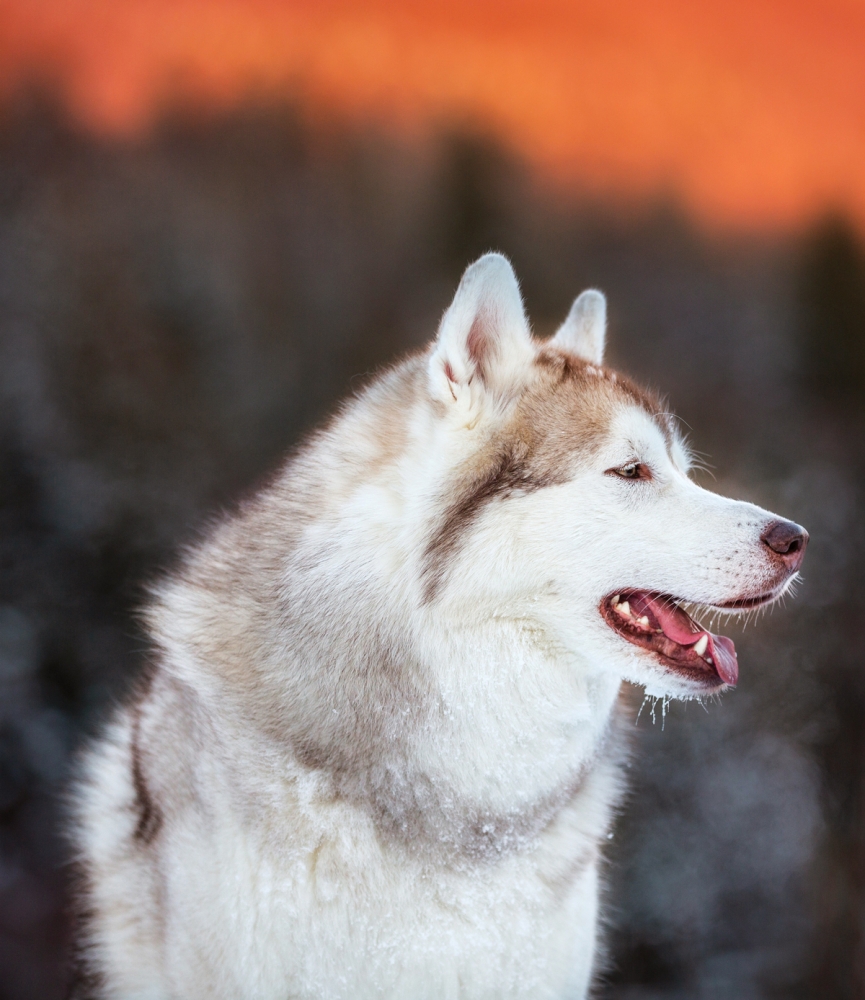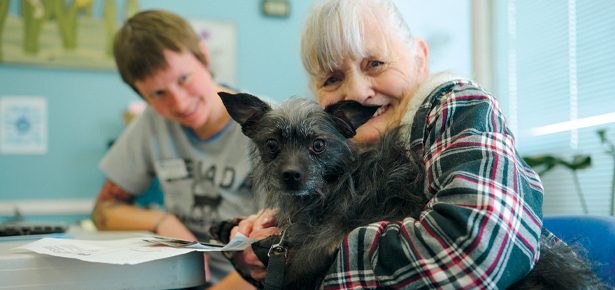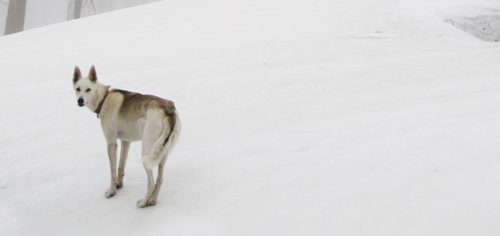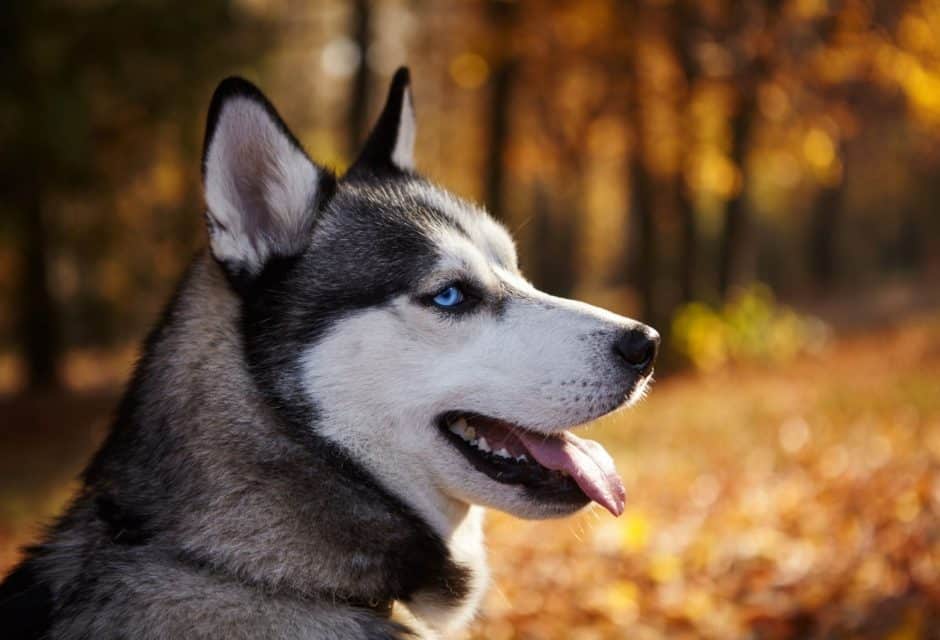
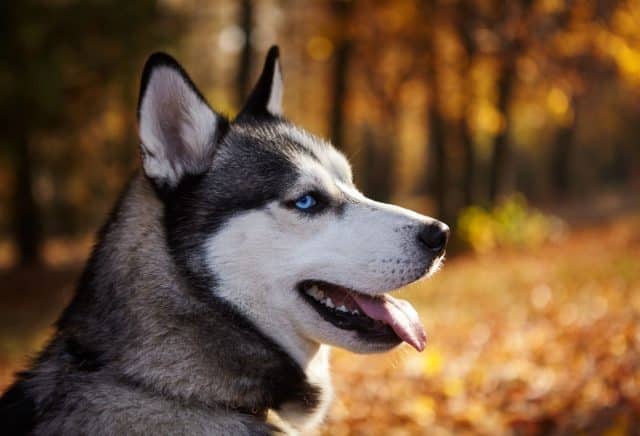
So You Think You Want a Husky? Here’s How to Tell If the Husky Is The Right Breed Match For You
Is the Husky right for you? This beautiful breed comes with a specific set of needs and issues
I’ve been involved in wolf, wolfdog and dog rescue for something like 30 years. I’ve volunteered for and have been employed by L.A. city shelters. I’ve worked for a respected rescue group. In addition to being a professional trainer and behavior specialist, I now volunteer at an L.A. County shelter. I share all of this to let you know that I’ve seen a lot in the dog world over the years. But never in all of that time have I seen anything like the flood of Huskies that is now pouring in to California shelters and rescues.
When a breed is popularized through film or television, unfortunate things happen. People get the Disneyesque version of the breed in their minds. Remember 101 Dalmatians? Think about all the unwanted Dals that ended up in shelters when people found out their dog was not Pongo. Or how about the Taco Bell Chihuahua, and all those oh-so-cute Chihuahuas who were purchased, given up, and left saying, “Yo quiero…a permanent home.” Add one part over-breeding and two parts lack of education and, well, now it’s happening with Siberian Huskies. I believe the trend can be attributed in large part to the huge popularity of Game of Thrones. I personally never watched the show, but I do believe the “direwolves” were the catalyst for many people wanting wolfy-looking dogs.
The unfortunate part is that Huskies, a breed I know well and love, are not only not direwolves, they’re not even typical dogs in the sense of what most people expect when they get a dog. Hence all the poor Huskies that are now sitting in shelters and rescues. Unfortunately, people often see only the beauty of the breed. And huskies are beautiful; the gorgeous, thick coat (which, by the way, will shed constantly and also decorate your home twice a year when the undercoat is blown), the masked-looking eyes that are sometimes a startling blue, and yes, the resemblance to wolves. And Huskies are intelligent, affectionate yet independent dogs who normally get along well with other big dogs. But what many people don’t see is that the breed comes with a specific set of needs and issues.
Image: A.Chernyavskaya/bigstock.com
If you’re considering getting a Husky, consider this:
1. Huskies are escape artists. They’ll jump over fences and dig under. (Burying a skirting of chain link along the fence line can help prevent dig-outs.) As far as fence height, some huskies will remain inside five foot fencing, but my recommendation is six feet or higher. Some owners even add lean-ins—those angled arms you see at zoos—at the top. Adding lean-ins to our already high fencing was the first thing we did when we adopted my girl Sierra, a Husky mix who had been at a County shelter no less than four times before we adopted her. Oh, and getting back to your yard, if it’s a beautiful, pristine oasis with lovely flowers that you don’t want dug up or destroyed, this may not be the breed for you.
2. Huskies have a strong prey drive. More than a few have been surrendered to shelters because they chased or killed the family cat, or killed chickens or other small animals. Unfortunately, some have also attacked or killed a smaller family dog. Not all huskies have this strong of a prey drive, and some do coexist with smaller breed dogs. But personally, if I had chickens, a cat, or a small dog, I would not bring a Husky into the home. Why take the chance?
3. Huskies need lots of exercise. And I don’t mean a 15-minute potty walk twice a day. I mean exercise; daily runs, hikes, or at least long walks. We used to do “urban mushing” with our dogs (a Husky mix and a Malamute mix), where, using special equipment, they pulled one of us on a scooter. In colder climates, people do actual mushing or carting with their huskies. Again, these dogs need serious exercise. If you’re an active, outdoorsy type, great! A Husky may just be the perfect companion for you. If you’d rather sit on the couch and watch Game of Thrones reruns, maybe not so much.
4. Huskies can be very destructive when left alone. If you’re planning to leave an unexercised husky in an apartment and go off to work, you should also plan to come home to a space that has been completely redecorated in the Doggy Demolition motif.
5. Huskies don’t bark much, so they don’t make good watchdogs, but they do howl. Will this be a potential problem with your neighbors?
6. Huskies can be challenging to train to off-leash reliability. I tell you this not only as an owner but as a long-time trainer. I’m not saying it can’t be done, but it will likely take a lot more work, as many will run off and will chase squirrels and other prey rather than coming back on command.
You might think, given all of these warnings, that I’m trying to dissuade you from adopting a Husky. I’m not. I’m just trying to prevent more from ending up in shelters or rescues. Again, Huskies are beautiful, affectionate, intelligent, companions. It’s because I love this breed that I implore you to consider whether a husky is really the right dog for you. If you do decide to get one, consider adopting. Shelters and rescues are filled with Huskies of all ages, victims of a lack of knowledge on the part of previous owners. And consider an adult dog. What you see with an adult is what you get as far as temperament; it’s not going to develop into something different as the dog grows. And, you’d be saving a life.
If you’re interested, please visit your local shelter, especially city and county shelters where the dogs are in danger of being euthanized if they’re not adopted. You can also search on Petfinder, Pet Harbor, Instagram, Facebook, and many other places online to find huskies that are available through private owners or rescues. If you’ve got the right containment and home situation, you might even consider fostering for a rescue group, which would allow you to “test-drive” the dog and make an informed decision on whether to adopt. In any case, howls of thanks to you for reading. Please help to spread the word and to educate others about this very special breed.
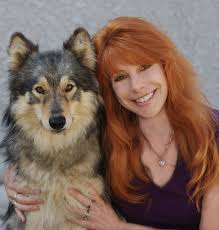
To learn more about other dog breeds, click here!
Join the newsletter and never miss out on dog content again!
"*" indicates required fields
By clicking the arrow, you agree to our web Terms of Use and Privacy & Cookie Policy. Easy unsubscribe links are provided in every email.
